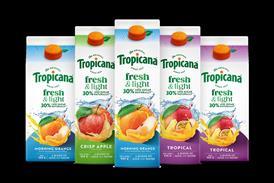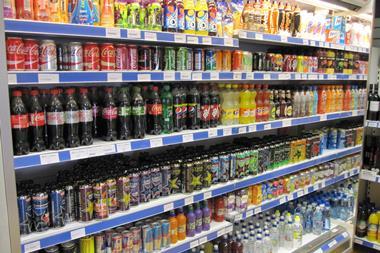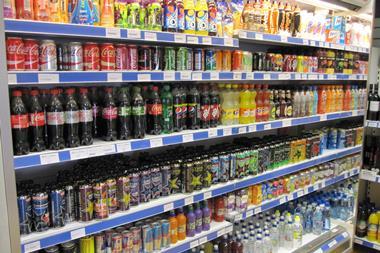The creation of a sugar tax could help tackle Britain’s “obesity crisis” by reducing demand for sugary drinks, members of the House of Common’s health select committee have been told.
Alison Tedstone, chief nutritionist at Public Health England, told the committee’s Childhood Obesity Inquiry that a “fiscal approach” could help cut consumption.
“The higher the tax increase the greater the effect,” she said. “The point of the tax is to nudge people away from purchasing these things and towards purchasing things that are more consistent with a healthy balanced diet.”
Her comments echoed those of celebrity chef Jamie Oliver who appeared before the same committee earlier in the week.
Oliver, whose petition to introduce a 20% tax on sugar sweetened drinks was signed by more than 148,000 people, called on prime minister David Cameron to be “brave” and introduce the sugar tax.
The government is currently reviewing the measures it will include in its new obesity strategy. Oliver said he did not believe that ministers had yet ruled out including a tax, despite the fact that the government responded to his petition by saying it had “no plans” to do so.
Referring to the government’s response Oliver said: “If you look at the small print it is also saying, ’We are reviewing it,’ which means that it is still open. This is why the time from now until the obesity strategy is launched is critical.
“The discussions that I have had have not implied that that is written off. The discussions that I have had have been robust, and Mr Cameron is reviewing everything. He seems to be interrogating it really well.”
“The point to make is that it is not radical, because the French are doing it, as well as the Mexicans. As a country, the French have some very interesting and positive public health statistics. They are being proactive. Why can’t we? They are being brave. Why can’t we? They are 26 miles over the sea. I refuse to accept that I am radical or unrealistic,” he added.
Gavin Partington, director general of the British Soft Drinks Association, said reformulation along with changes in portion size and better education would be more effective than a tax.
“The soft drinks sector has demonstrated this by leading the way on reformulation and expanding product choice. This has already achieved a 7.5% reduction in calories consumed from soft drinks between 2012 and the start of 2015. By contrast the tax in Mexico has resulted in a reduction of only 6 calories per day from their diet,” he added.
The government is expected to publish its obesity strategy by the end of this year.










![WG-4003[58]](https://d2dyh47stel7w4.cloudfront.net/Pictures/274x183/4/5/1/353451_wg400358_6083.jpg)











No comments yet